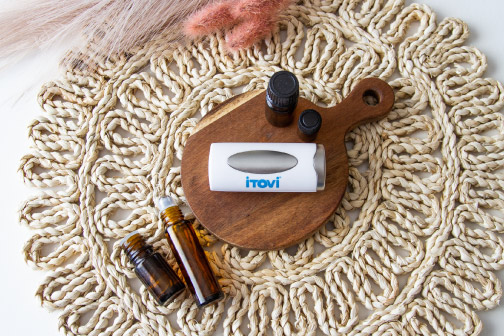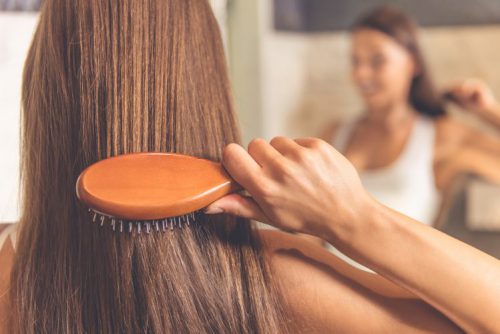
Sleep is truly one of the cornerstones of wellness.
Instead of asking “What part of my wellness does my sleep affect?” we might as well ask “What part of my wellness does my sleep not affect?”
Deep, healthy, regular sleep
- fuels your brain, allowing you to consolidate memories from the previous day and be capable of maximum learning and brain functioning the next day.
- flushes environmental and internal toxins out your brain and body
- gives your heart a rest, reducing your risk of cardiovascular disease
- balances your nervous system
- replenishes crucial immune system cells
- regulates the hormones of your endocrine system
- supports your digestive/gut health
- coordinates the work of your kidneys/urinary system
- protects the skin
- allows the brain and body to heal and grow (which is especially crucial when we are young)
- And more
And if that isn’t enough to convince you of the importance of sleep—how about some scary stats?
- Losing just 1 hour of sleep increases your risk of heart attack, car accident, and suicide by 24%! (source: Daylight Savings Study)
- Missing out on 4 hours of sleep leads to a 70% decrease in immune cell activity! (source: Dr. Matthew Walker)
- Losing one night’s sleep lowers your capacity to remember and learn things the next day by 40%! (source: The Sleep Foundation)
- Regularly sleeping only 5 hours a night gives you a 65% increased chance of diabetes, cardiovascular problems, and obesity! (source: Dr. Matthew Walker)
- Lack of sleep can significantly changes your DNA expression, promoting the activity of genes that tend towards illness, including cancer, and suppressing the activity of genes that support your health! (source: Neuroscience News)
It’s truly indisputable—we all need our regular Z’s to be our best selves!
And yet, despite what we know about the importance of sleep, one in three adults and about 90% of teenagers in the United States are sleep deprived…and suffering mental, physical, and emotional consequences because of it! Yikes!
The good news is that smart sleep habits can improve the quantity and quality of our sleep—which will, in turn, increase our energy levels, maximize our mental output, improve our emotional regulation, help us lose weight, keep us from getting acute and chronic illnesses, brighten and smoothen our skin, and prolong our lives! Sounds like a good deal!
So, are you ready to learn how to sleep smart?
Step 1: Make Your Bedtime Routine an Art
For optimum wellness, the adult human body needs more than just 7-8 hours of sleep. We need 7-8 hours of deep, regular sleep—meaning that we always go to bed and get up at the same time everyday (during the week and on the weekend).
And that typically only happens when we have a solid bedtime routine!
Make no mistake, there is an art to creating and executing an effective bedtime routine! It’s like a nightly dance that requires discipline over both your body and mind. But the applause from your body is well worth it.
Of course, there are a few tools, including essential oils and the iTOVi scanner, that can help you pull off an expert bedtime routine. But you have to bring the central piece: yourself.
Timing Is Everything
Timing is the most vital (and often the most difficult) part of an effective bedtime routine.
The trick is to 1) always start your bedtime routine at the same time and 2) start your bedtime routine while you still have some energy left.
Many make the mistake of saying, “Oh, I’ll just keep doing fun/productive things until I start feeling tired enough to go to bed”. Bad idea! That method makes it far too easy for a work project, intense worry, or fascinating tv episode to throw off the regularity of your sleep schedule! You’ll never get to bed on time if that is your strategy.
Additionally, if you wait until you are very sleepy to start your bedtime routine, you’ll likely skip important parts of it—like clearing your mind, doing your skincare, or even brushing your teeth! And then you’ll likely go to bed with your body tired but your mind still busy and therefore be much more likely to experience sleep interruptions in the night.
So, start your bedtime routine a little earlier than you think you need to and while you still have some energy to give towards doing it right!
Begin your bedtime routine 30-60 minutes before you intend to go to bed. Set a timer. Have a plan. And don’t let anything disrupt, delay, or deter you from your bedtime routine. Your sleep is so vital to your wellness that you must guard your bedtime routine from things that would derail it.
What if, after doing my regular routine, I still can’t fall asleep? An effective bedtime routine will usually stop this from happening. However, we all experience restless nights sometimes, even with a solid routine.
If it takes you more than 20-30 minutes to fall asleep, get up, move to another room, and do relaxing activities (see suggestions below) until you feel tired enough to return to your bed and try falling asleep again.
But it’s just so BORING to do a bedtime routine! Well..good. Your bedtime routine isn’t meant to fascinate you. It’s meant to relax you. Now is actually the perfect time to train your brain to resist the urge to constantly seek novelty and mental stimulation. It’s actually a very healthy mental skill to develop! Instead of seeking novelty and fun during this time, learn to mindfully immerse yourself, mind and body, in the familiar sensory cues of your bedtime routine. Be in the moment with it. Remember—it’s like a dance.
What Should I Include in My Bedtime Routine?
There are many possible steps you could choose to include in your 30 to 60-minute bedtime routine.
Some steps should be non-negotiable and absolutely used in everyone’s routine:
- AVOID blue light from screens for the last 2-3 hours before bed (we know it’s hard, but it really is good for your brain.)
- Brush and floss your teeth
- Take out your contact lenses (if applicable)
- Wash your face/complete your nighttime skincare routine
Again, the steps above should be considered non-negotiable! But those steps won’t be enough to maximally relax you or fill your 30 to 60-minute routine. So, you might also consider including:
-
- An Activity or Two to Relax your Body.
- Slow and gentle stretches*
- Light yoga*
- Self-massaging (with your top oils in the Structural section) to release tension from your body.*
- Body Scan Meditation
- Tapping Method
- An Activity or Two to Relax your Body.
-
- An Activity or Two to Relax your Mind
- Mindfulness Meditation (with your preferred oils)
- Light reading*
- Drawing (supports alpha brain waves)
- Journaling*
- Fill out a quick bullet journal
- Stream of Consciousness Journaling*
- Quick self check-in with the iTOVi Scanner*
- Any prayers or spiritual practices you want to include*
- Listen to relaxing sounds (ocean waves, sound bowls, etc)
- An Activity or Two to Relax your Mind
*Activities best completed towards the beginning of your bedtime routine rather than the end.
Bonus tips
- Sleep on your left side. Lying on your left side can increase parasympathetic nerve activity and therefore increase relaxation. So, if you have to pick a side to lie on—pick left!
- Resistance training. Lifting weights, squats, push ups, sit ups, and other resistance exercises increase slow wave sleep! This may be especially helpful if you struggle with getting too much restless, light, REM-dreaming sleep and need more deep, restorative sleep.
- Certain smart devices. The Apple Watch Series 8, Fit Bit, Muse S Headband, and other devices can monitor your sleep to help you know which part of your sleep cycle needs more support.
- A warm cup of tea. Warm drinks can help relax your body before bed. But do not drink too much in the 2 hours before you go to bed as this can increase the number of times you need to get up in the night to use the bathroom.
- Have good eating habits. If you fall ill and go to bed on an empty stomach this can lead to a night of “45-minute interval sleep” which isn’t very restful at all!
What are the best oils to use in my bedtime routine? |
| Best researched: Lavender oil
Other top options: Clary Sage, Chamomile, Bergamot, Cedarwood, Black Spruce Best iTOVi emotional categories to work in:
Best iTOVi physical categories to work in:
|
Make Your Sleeping Space Perfect
Where you sleep has a huge impact on how well you sleep, how quickly you fall asleep, and whether or not you stay asleep.
Admittedly, it’s not always cheap to set up the best sleep accommodations. But you spend a third of your life in bed and your sleep affects your wellness so much—we say it’s definitely worth it to invest in your sleeping space!
Temperature
Temperature is one of the most important factors to your body’s ability to fall asleep and stay asleep.
First off, it’s never easy to fall asleep in a room that is too warm. But once you’re asleep, your core body temperature actually goes down, and if your body gets too cold—it could wake up, ruining a perfectly good sleep cycle!
A cool room (60 to 67 degrees Fahrenheit/15.6 to 19.4 degrees Celsius) and a warm blanket (a heavier one in winter and a lighter one in summer) has consistently been found to be the best combination to help your body temperature throughout the night.
But if your room tends to get too hot or cold for optimal sleep, you may need to get a fan, install a thermostat in your room, get a specialized mattress, or do anything else you need to keep your room sleep-temperature friendly!
(Bonus tip: Don’t wear socks to bed unless it is really cold. You’re generally more comfortable if your feet can “breathe” at night.)
Light
Light is a sleep-killer. It literally sends a message to your brain to wake up and/or stay awake!
So, protect your precious sleep hours from light-pollution by:
- Avoiding blue-light screens from tvs and cellphones and other strong lights in the two to three hours before you go to bed.
- Implementing a no-cellphone-use-in-the-bedroom rule.
- Installing soft lighting options in the bedroom.
- Buy and set up blackout curtains over your windows to keep out the light from street lamps and/or early morning light.
Noise
Noise can increase your stress, keeping you from falling asleep, and if it’s loud enough it can even disrupt your sleep.
And while you can’t control all possible noise sources (like the traffic outside, your neighbor’s late night party, or your newborn’s cries), there are some things you can do, such as:
- Soundproof your room.
- Get a white-noise machine for your room
- Use comfy noise-canceling earbuds or headphones
- Get snoring medication for yourself or your spouse
Comfort
Again, you literally spend a third of your life in bed! So you should be comfortable! Plus, comfort will help you fall asleep and stay asleep.
Maximize the comfort of your sleeping space with:
- Personalized touches that make your bedroom a familiar, happy place
- Comfy pajamas
- A high-quality mattress and pillow that suit your sleep needs
- Blankets and sheets that are cozy and don’t irritate you at all
Also, remove anything from your bedroom that you find overly distracting or stressful. This may include minimizing clutter and moving distracting gadgets to another room.
Avoid the Most Common Sleep Mistakes!
Avoid sleeping pills (except appropriate doses of melatonin). Most sleeping pills help you fall asleep, but they also prevent you from sleeping deeply and sleeping as long as you could. Replace sleeping pills with a solid bedtime routine and maybe some melatonin.
Avoid alcohol & marijuana around bedtime. These substances are sedatives—not sleep aids. They actually increase the likelihood of nighttime wakeups and reduce your REM sleep. (Cannabinoid products with the THC removed may be helpful.)
Do not build up a sleep debt. You cannot make up for a night’s lost sleep by sleeping more the next day. Neither will it do you much good to sleep less on the weekdays and make up for it by sleeping extra on the weekends. Sorry. The human body just doesn’t work like that. Strive for a regularly-timed habit of 7-8 hours every night.
Stay on track with a regular morning routine.
If you don’t get up and stay up at the right time, you’ll find it hard to fall asleep at a regular time.
Your morning and evening habits together will either keep your sleep-wake cycle (a.k.a. your circadian rhythm) steady and healthy or make it irregular and unhealthy.
For a solid morning routine, we recommend including:
- An activity or two to wake up your body
- An activity or two to wake up your mind
- A hygienic routine
What are the best oils to use in my morning routine? |
| Most often recommended: Invigorating citrus oils (orange, lemon, lime, mandarin, etc)
and/or warming oils (clove, cinnamon, ginger, cardamom, marjoram, etc) Best iTOVi emotional categories to work in:
Best iTOVi physical categories to work in:
|
Conclusion
Remember: Your sleep is important because you are important. And certainly no self-care, self-improvement, or self-compassion journey could be complete without taking your sleep-health into account.
Trouble is, to safeguard sleep health (and the physical, mental, and emotional health of ourselves and our loved ones), we have to combat a modern culture that is all-too-willing to promote distraction, shallow productivity, stimulants, blue light-use, stress, and other sleep-killing elements!
It takes a mindset shift for us to live a sleep-positive life!
We need to embrace sleep as a good thing. We must respect it as the upholding force that enables and maximizes our daytime fun and productivity—rather than as something that interrupts our daytime pursuits.
The world has a lot to learn about sleep. But as leaders, including wellness advocates, parents, medical professionals, and community leaders, continue to actively advocate for sleep, we will build a sleep-healthy society that will uphold human health and happiness across the globe!




